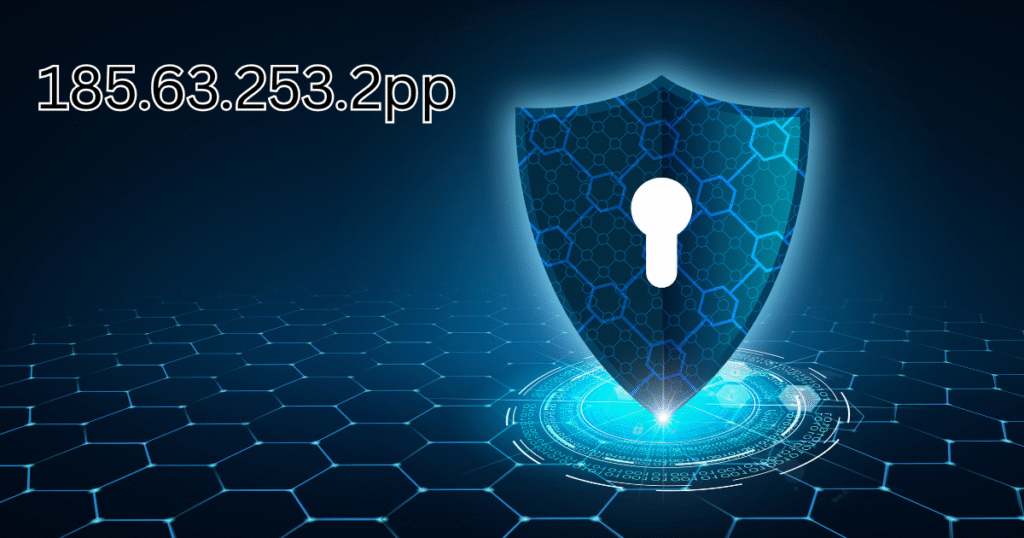In today’s digital world, staying safe online is more important than ever. With cyber threats hiding around every corner, it’s not just big corporations that need to worry — everyday users like you and me are also at risk. One IP address is now raising red flags across the tech community: 185.63.253.2pp.
You might be wondering, “What does an IP address have to do with me?” Well, this specific one has been involved in some shady online behavior, and understanding why that matters can help you protect your personal data.
What Is an IP Address, Anyway?
Let’s break it down. An IP address is like a digital home address — it tells computers where to send and receive information. When you’re online, your device has an IP address, and so does every website or server you visit.
Think of it like mailing a letter. If you don’t know where to send it, it never arrives. That’s how the internet moves information around — by using IP addresses.
Why Is 185.63.253.2 a Problem?
So, what’s the deal with 185.63.253.2pp? Reports have linked this IP address to a range of malicious activities, including:
- Phishing attacks – Tricking users into giving away passwords or personal data.
- Botnet activity – Using hacked devices to launch cyberattacks on a large scale.
- Spamming – Sending massive amounts of unwanted emails, often loaded with dangerous links.
In short, contact with this IP address could spell trouble for your device — and your personal information.
Who’s Behind It?
Unfortunately, the internet doesn’t always make it easy to figure out who’s running what. Threat analysts have traced the IP address to a data center in the Netherlands. While that might sound innocent enough, this specific server has been flagged numerous times for hosting suspicious content or acting as a command center for cybercriminals.
It’s a bit like discovering a rundown building in town that criminals keep using for shady deals — the building itself isn’t illegal, but the activity happening inside is.
Why Should You Care?
You might be thinking, “This sounds like nerd stuff. I’m not a hacker, so why does it matter to me?” Great question.
Here’s the reality: cyberattacks don’t just happen to tech companies or governments. Regular folks get caught in the crossfire all the time. That could mean:
- Your email gets hacked, and scammers use your account to trick your friends.
- Your personal data ends up on the dark web after you click a sketchy link.
- Your device becomes part of a botnet — secretly used to attack other computers!
It’s easier than ever to become an accidental victim. And that’s why staying informed is your first line of defense.
How to Protect Yourself Online
Don’t worry — you don’t have to be a cybersecurity expert to stay safe online. Here are a few simple steps you can take to guard yourself against threats like 185.63.253.2pp:
1. Keep Your Software Updated
Hackers love outdated software. Always install updates for your operating system, browser, and apps as soon as they become available.
2. Use a Trusted Antivirus Program
Antivirus software helps block malware and alerts you to suspicious activity. Think of it as a security system for your computer.
3. Avoid Clicking on Suspicious Links
If you get an email that looks odd — maybe full of spelling mistakes or asking you to “verify your account” — delete it. When in doubt, don’t click.
4. Check Suspicious IP Addresses
Have you ever looked at your firewall logs or router settings and seen a strange IP address like 185.63.253.2? Do a quick online search or use a reverse IP lookup tool before trusting unknown connections.
5. Use Strong, Unique Passwords
Don’t use “123456” or “password” (seriously). Use a mix of letters, numbers, and symbols. Even better, use a password manager to keep them secure and easy to manage.
Site Administrators, Take Note
If you run a website or manage a server, it’s especially important to keep malicious IPs like 185.63.253.2 out of your networks. Here’s how:
- Block suspicious IPs from accessing your site using firewalls or .htaccess rules.
- Monitor traffic for strange patterns or spikes — this could indicate bot activity.
- Use security plugins or services to scan for vulnerabilities and unauthorized access.
Stay One Step Ahead
Cybersecurity doesn’t have to be scary or complicated. The most important thing is to stay aware and proactive. IP addresses like 185.63.253.2pp are out there, and as long as they are, it’s up to each of us to protect our digital lives.
I like to think of it like locking my front door — not because I’m expecting someone to break in, but because it’s just common sense. And even online, a little common sense goes a long way.
Final Thoughts
The internet is a powerful tool, but it can also be a dangerous place if you’re not careful. By learning about threats like the IP address 185.63.253.2pp and following simple safety tips, you’re taking an important step toward protecting yourself — and your data — from harm.
Have you ever had a close call with a suspicious link or pop-up? Let us know in the comments — it might help someone else avoid the same mistake.
Stay smart, stay safe, and keep your digital door locked.
